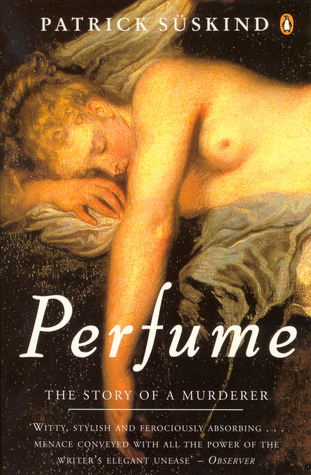 From 1968-1974 he studied medieval and modern history in Munich and Aix-en-Provence. In the ’80s he worked as a screenwriter, for Kir Royal and Monaco Franze among others.
From 1968-1974 he studied medieval and modern history in Munich and Aix-en-Provence. In the ’80s he worked as a screenwriter, for Kir Royal and Monaco Franze among others.
After spending the 1970s writing what he has characterized as “short unpublished prose pieces and longer un-produced screenplays”, Patrick Süskind was catapulted to fame in the 1980s by the monodrama Der Kontrabass [The Double Bass, 1981:], which became an instant success and a favourite of the German stage. In 1985 his status as literary wunderkind was confirmed with the publication of the novel Das Parfüm. Die Geschichte eines Mörders [Perfume. The Story of a Murderer:], which quickly topped the European best-seller list and eventually sold millions of copies worldwide.
Books

Perfume: The Story of a Murderer
An acclaimed bestseller and international sensation, Patrick Suskind’s classic novel provokes a terrifying examination of what happens when one man’s indulgence in his greatest passion – his sense of smell – leads to murder.
In the slums of eighteenth-century France, the infant Jean-Baptiste Grenouille is born with one sublime gift – an absolute sense of smell. As a boy, he lives to decipher the odors of Paris, and apprentices himself to a prominent perfumer who teaches him the ancient art of mixing precious oils and herbs. But Grenouille’s genius is such that he is not satisfied to stop there, and he becomes obsessed with capturing the smells of objects such as brass doorknobs and fresh-cut wood. Then one day he catches a hint of a scent that will drive him on an ever-more-terrifying quest to create the “ultimate perfume” – the scent of a beautiful young virgin. Told with dazzling narrative brilliance, Perfume is a hauntingly powerful tale of murder and sensual depravity.
He succeeded in being considered totally uninteresting. People left him alone. And that was all he wanted.
Not a visible enthusiasm but a hidden one, an excitement burning with a cold flame.
…he came to the conclusion that you cannot depend on people, and that you can live in peace only if you keep them at arm’s length.
Odors have a power of persuasion stronger than that of words, appearances, emotions, or will. The persuasive power of an odor cannot be fended off, it enters into us like breath into our lungs, it fills us up, imbues us totally. There is no remedy for it.

